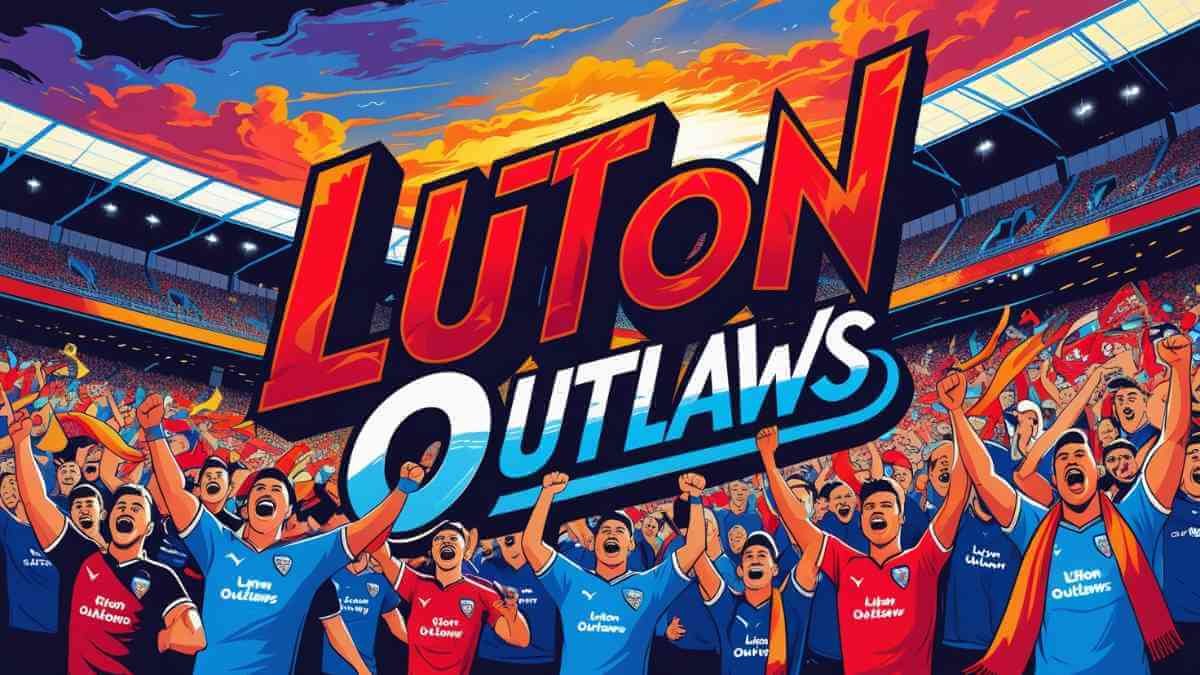Luton Outlaws: The Unofficial Voice of Passionate Football Supporters

Football is more than just a game in the United Kingdom; it is a way of life, a culture deeply rooted in the communities that support their local clubs. Among the many groups that have emerged around the country, one of the most distinctive is Luton Outlaws. Known as The Avenue of Evil, this fan-driven community is not officially tied to Luton Town Football Club, but it has become an important hub for discussion, debate, and the passionate expression of loyalty. Despite being described by some as quirky or even outdated in its format, the forum continues to thrive as a meeting place for fans who want to share opinions, celebrate victories, and air frustrations.
Origins of Luton Outlaws
The history of Luton Outlaws can be traced back to the days when online football forums were beginning to shape the way supporters communicated. Long before social media dominated fan engagement, message boards were the heartbeat of football discussion. The group took shape as a grassroots project by dedicated supporters who wanted a platform outside the control of the club. This independence meant members could discuss not only the results and tactics but also off-pitch matters, ownership issues, and even light-hearted banter without restrictions.
From its earliest days, the forum was built on fan energy and self-management. Unlike official supporters’ clubs, which often operate within boundaries set by the team, Luton Outlaws grew into an open space where opinions could flow freely, regardless of whether they aligned with official narratives.
The Identity of the Avenue of Evil
The unusual nickname, The Avenue of Evil, reflects the rebellious and tongue-in-cheek identity of the community. It symbolises the willingness of members to tackle contentious subjects and speak their minds, even when their views might not sit comfortably with outsiders or rival fans.
Inside the forum, sections such as the Hall of Shame demonstrate the community’s sense of humour and its readiness to call out moments of controversy or ridicule. The What We Are section further clarifies the group’s ethos: they are passionate, independent, and unapologetically outspoken.
Structure and Culture of the Forum
At its core, the Luton Outlaws forum resembles an early internet message board. While modern fans may be accustomed to sleek designs and real-time updates, Outlaws maintains a more traditional style, with comment trees and threads that echo the forums of the late 1990s and early 2000s.
This style has often divided opinion. Some newcomers find the layout dated and difficult to navigate, yet many long-time members celebrate this retro feel. For them, it represents continuity and tradition in an age where football culture often feels overly polished and commercialised.
The community thrives on interaction. Matchday discussions, player performances, and debates about refereeing decisions often dominate the forum. Beyond football, members also share jokes, personal stories, and reflections on broader cultural issues, which strengthens the sense of belonging.
Relationship with Luton Town FC
One of the most striking aspects of Luton Outlaws is its independence. Unlike an official supporters’ trust, the forum is not endorsed by the club. This allows for honest critique and unfettered analysis of Luton Town’s management, strategy, and business decisions.
This independence has its pros and cons. On the positive side, it gives fans the freedom to voice frustrations and celebrate achievements without censorship. On the other hand, it occasionally places the forum at odds with the official stance of the club or its more formal supporters’ organisations. Nevertheless, the Outlaws’ passion for the Hatters is unquestionable. They are united in their commitment to seeing the club succeed, even when they disagree on how best that success should be achieved.
The Role of Humour and Banter
Humour is central to the Outlaws’ culture. Rival fans often stumble across the forum and find themselves both amused and bewildered by the style of conversation. Regulars, however, understand that the sarcastic tone and witty exchanges are part of the community’s identity.
The Hall of Shame exemplifies this spirit, providing a space where particularly amusing or controversial comments are preserved. This feature keeps the community vibrant and entertaining, even during quieter periods when Luton Town are not playing.
Perceptions from Outside
Fans of rival clubs have often commented on the distinctiveness of Luton Outlaws. Some describe it as a “throwback” forum, reminiscent of the early internet, with its stripped-down design and straightforward comment threads. For some, this feels archaic; for others, it makes the forum refreshingly authentic compared to the polished social media platforms of today.
Such perceptions have only added to the forum’s character. To its members, the Outlaws’ resilience in maintaining their space proves their commitment. While other forums have disappeared in the era of Twitter and Facebook, this one continues to attract conversation and debate.
Community Spirit and Shared Loyalty
Beyond the design and banter, what truly defines Luton Outlaws is the shared loyalty to the club. The forum offers a place where supporters can find like-minded individuals who understand the highs and lows of following Luton Town. From the struggles of the lower leagues to the joy of promotion battles, members gather to experience the journey together.
This sense of shared identity is especially important during challenging times. When the club has faced financial issues or on-field setbacks, the Outlaws forum has provided an outlet for fans to rally together, exchange ideas, and maintain their commitment.
Why Luton Outlaws Matters
The significance of Luton Outlaws lies not just in its discussions but in its role within the wider football culture. It represents the power of independent fan communities to shape narratives, build solidarity, and preserve traditions. In an age when football often feels dominated by commercial interests, communities like Luton Outlaws remind us that the game ultimately belongs to its supporters.
The forum provides:
Freedom of expression, allowing honest and often humorous debates.
Continuity, preserving the culture of early football forums.
Community bonding, helping fans connect beyond the terraces.
A platform for critique, where the club’s direction can be discussed without restriction.
The Future of Luton Outlaws
Looking ahead, the future of Luton Outlaws will depend on its ability to balance tradition with relevance. While social media continues to grow as the main avenue for fan engagement, forums like this offer a different experience—slower, more thoughtful, and steeped in community culture.
If it maintains its independence and humour while embracing small updates to remain accessible, the forum can continue to thrive. Its very uniqueness may also become its greatest strength: as other spaces become uniform, the quirky, unapologetic character of the Outlaws may keep attracting fans who crave something different.
Conclusion
Luton Outlaws is not simply a website; it is a living expression of football fandom. It embodies the independence, humour, and passion that make following a club such an intense experience. From its early days as a grassroots forum to its continued role as an outspoken community, the Outlaws stand as a testament to what happens when fans take ownership of their voice.
For supporters of Luton Town, the forum is both a sanctuary and a battleground of ideas. For outsiders, it may appear old-fashioned or even eccentric, but for those who belong, it is part of their footballing identity. Ultimately, Luton Outlaws proves that football is more than ninety minutes on the pitch—it is about the conversations, the debates, and the communities that form around the beautiful game.



